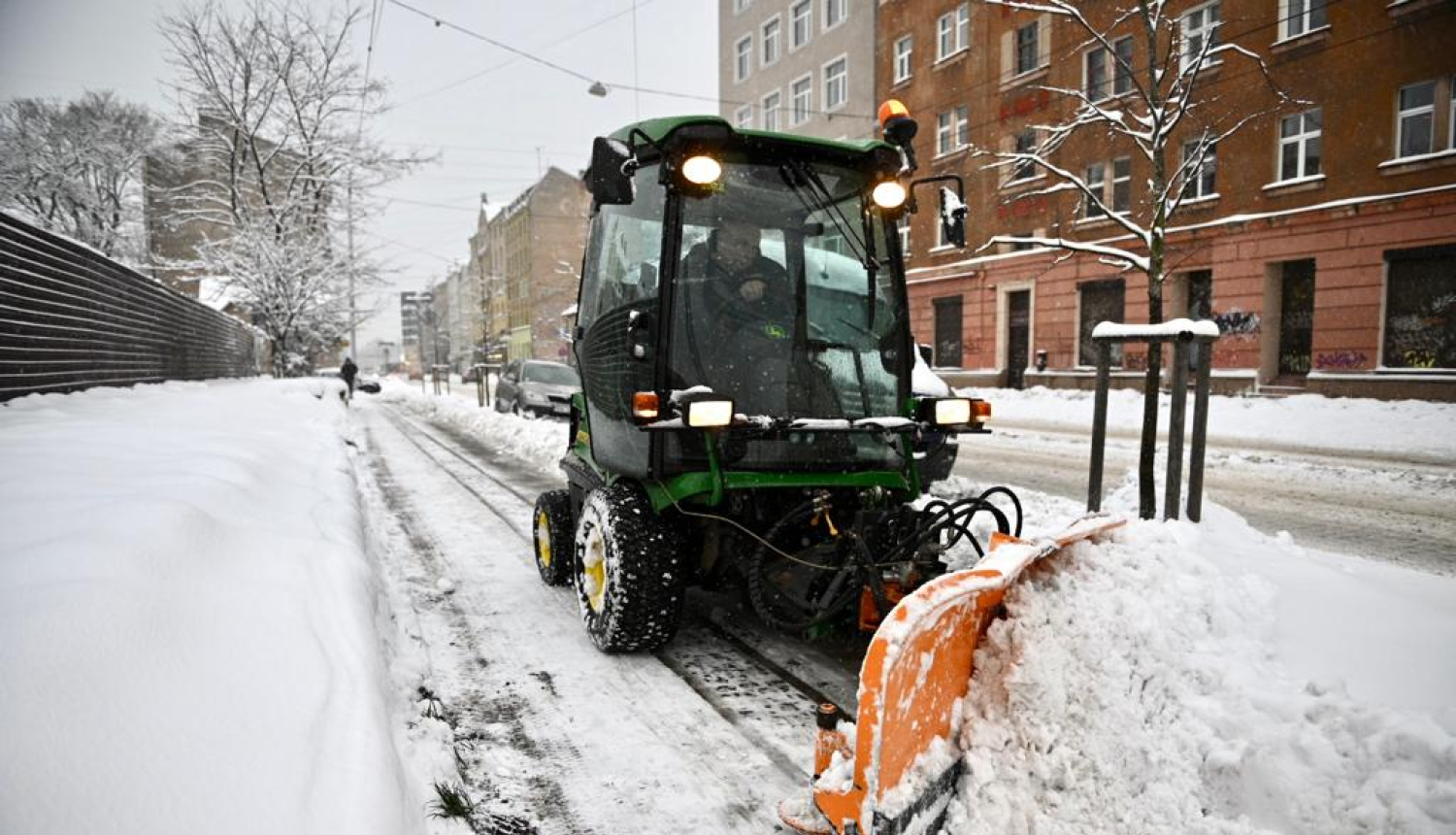On 13 September, the Committee of Housing and Environment of the Riga City Council supported the proposal for gradual transition to centralised pavement maintenance during winter in Riga within a period of three years, thus reducing the burden on residents to maintain the adjacent areas.
A gradual transition to centralised maintenance of pavements adjacent to streets will start in the winter season of 2022/2023 when centralised pavement maintenance works are planned in the area of the Historic Centre of Riga (HCR) and its protection zone. This area was prioritised because of the large number of cultural and educational institutions, and also public and municipal services situated in the city centre.
Centralised maintenance of pavements in the HCR and its protection zone will cost 150,000 euros in 2022. Some of the pavements will be cleaned by the Territory Improvement Office of the Riga City Council which has nine units of technical equipment available for this purpose. The remaining pavements in the HCR and its protection zone will be cleaned by a service provider selected following a procurement procedure.
It is envisaged that in winter of 2023/2024, in addition to the pavements of the HCR and its protection zone, the pavements adjacent to streets of Category 1 and Category 2 will be centrally maintained as well. In the winter of 2024/2025, the pavements adjacent to the municipality’s streets will be centrally cleaned throughout the city. Centralised winter maintenance of all pavements adjacent to the city’s streets is expected to cost the municipality around 3.2 million euros per year.
Centralised maintenance of pavements during the winter season will include clearing snow from pavements, gritting pavements with a mixture of sand and salt, and collecting gritting material from pavements at the end of the winter season. As previously, owners or building managers will be responsible for clearing and gritting of yards, stairs, entrances, driveways, etc. during winter.
Owners and building managers will also have to continue clearing snow from roofs and pavements. For the rest of the year, owners of areas adjacent to pavements will have to keep the pavements clean as before, including ensuring removal of leaves and litter.
When commenting on the benefits of centralised maintenance of pavements in winter, Chairman of the Riga City Council Mārtiņš Staķis emphasises: “First, we’ll be able to clean pavements faster – by working at night. So that when people go to school and work, they will be walking on clean pavements. Second, in the long term, we will also be able to synchronise pavement cleaning with road cleaning so that the work is coordinated and mutually seamless. And third, we will definitely develop the service so that the units are equipped with GPS and other tools to ensure that work is delivered to a high standard of quality.”
The decision on transition to centralised pavement maintenance during winter is still to be adopted at a Council meeting.
Author: Edīte Matuseviča, Project Coordinator at External Communication Division of Riga City Council Communication Department, telephone: +371 26188165, e-mail: edite.matusevica@riga.lv



